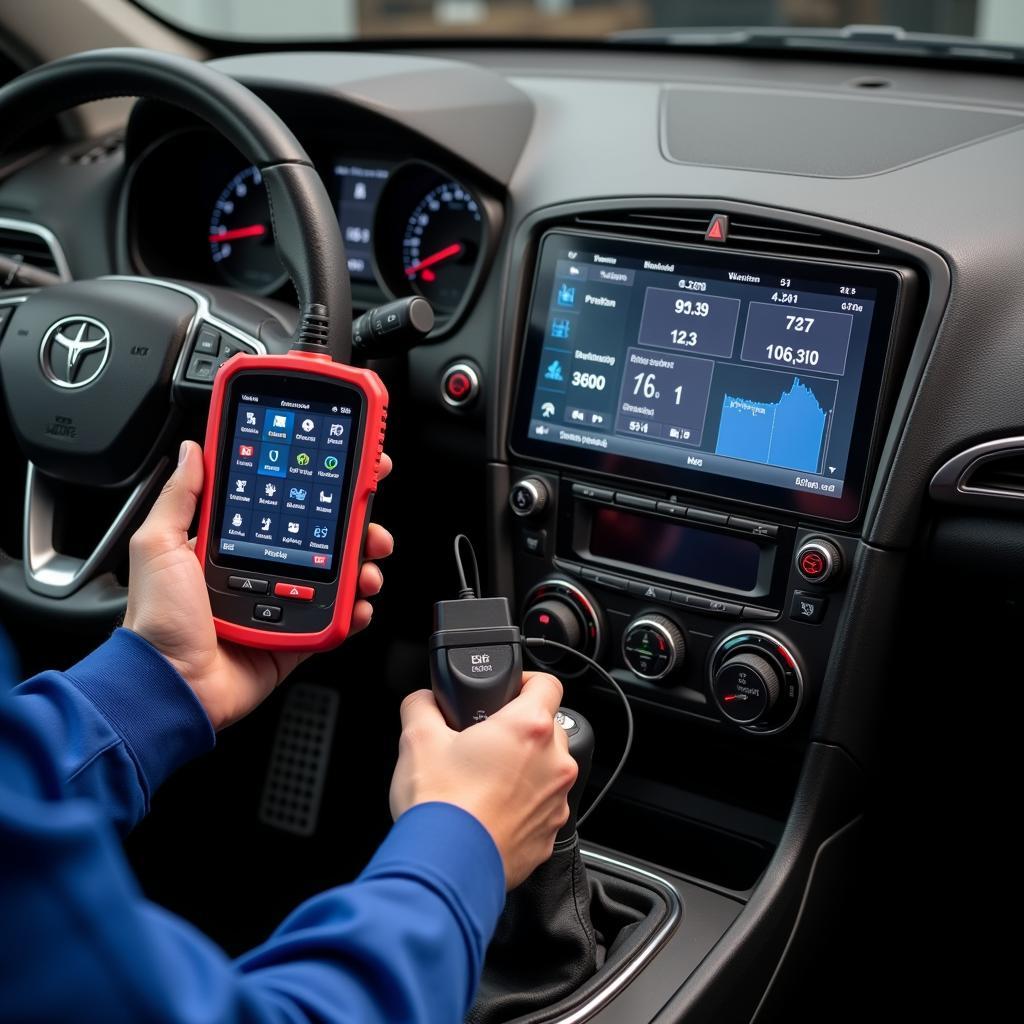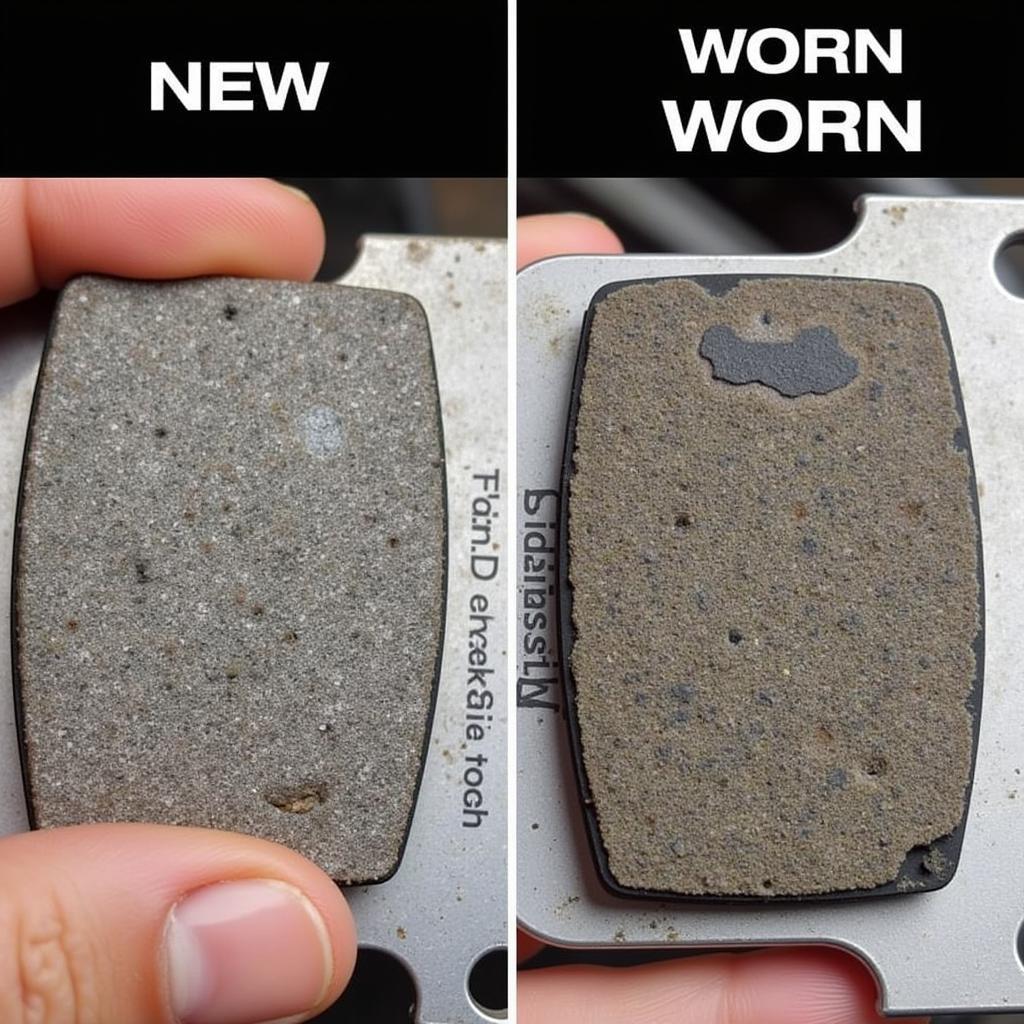Your car has a battery, but it’s not starting. This frustrating situation is all too common, and can stem from a surprising number of issues. This guide will walk you through the most likely culprits and help you get back on the road.
A dead battery is often the first suspect, but if you’ve confirmed your battery has juice, the problem lies elsewhere. Let’s dive into the possible causes and solutions.
Why Your Car Has Battery But Won’t Start
Several components work together to start your car, and a fault in any of these can prevent the engine from turning over. From a faulty starter to a bad ignition switch, understanding the potential problems is crucial for effective troubleshooting.
Common Culprits: Starter, Ignition, and Fuel
- Starter Motor: The starter motor is responsible for cranking the engine. A failing starter might make a clicking sound or not make any noise at all when you turn the key.
- Ignition System: The ignition system provides the spark that ignites the fuel. A faulty ignition switch, coil, or distributor can prevent the engine from starting.
- Fuel System: Even with a good battery and starter, your car won’t start without fuel. A clogged fuel filter, faulty fuel pump, or a problem with the fuel injectors can starve the engine.
Less Common Issues: Electrical Problems and Security Systems
While less frequent, electrical problems and security system malfunctions can also prevent your car from starting. These include:
- Corroded battery terminals: Even if the battery is charged, corroded terminals can prevent the current from flowing to the starter.
- Faulty wiring: Damaged or loose wiring can interrupt the electrical circuit needed to start the car.
- Immobilizer or alarm system malfunction: A malfunctioning immobilizer or alarm system can prevent the engine from starting as a security measure.
You can upgrade your car’s sound system for a better experience while driving. Kenwood DPX-5100BT 2-Din In-Car Radio with Built-in Bluetooth is a great option.
Troubleshooting Your Car Starting Problem
Before calling a tow truck, there are several steps you can take to diagnose the problem yourself. This can save you time and money.
Step-by-Step Guide to Diagnosing a Non-Starting Car
- Check the battery connections: Make sure the battery terminals are clean and tight.
- Listen for the starter: When you turn the key, do you hear a clicking sound? This could indicate a failing starter motor.
- Check the fuel gauge: Ensure you have enough fuel. A simple oversight can sometimes be the culprit.
- Inspect the fuses: Check the fuse box for any blown fuses related to the ignition or fuel system.
- Try jump-starting the car: If the battery is weak, jump-starting can temporarily bypass the problem.
“A common mistake people make is assuming the battery is dead without checking the connections,” says automotive expert John Miller. “Clean terminals can make all the difference.”
When to Call a Professional
If you’ve tried these steps and your car still won’t start, it’s time to call a professional. A qualified mechanic can diagnose the problem using advanced diagnostic tools and perform the necessary repairs.
For older car models, a simple solution like turn old car radio into Bluetooth can bring new life to your car audio. If you’re looking for better audio, a universal bluetooth car radio adapter is another great alternative.
Conclusion: Getting Your Car Back on the Road
A car that has a battery but won’t start can be a major inconvenience. By understanding the potential causes and following the troubleshooting steps outlined above, you can often pinpoint the problem and get your car running again. If the issue persists, don’t hesitate to seek professional help. Addressing the problem promptly can prevent further damage and get you back on the road safely.
 Mechanic Diagnosing Car Problem with Diagnostic Tool
Mechanic Diagnosing Car Problem with Diagnostic Tool
“Regular maintenance is key to preventing starting problems,” advises Sarah Thompson, lead mechanic at Thompson Automotive. “Simple checks like cleaning battery terminals and inspecting fuses can save you headaches down the road.”
FAQs
- Can a bad alternator prevent a car from starting? While a bad alternator can drain a battery, a car with a good battery should still start, even with a faulty alternator.
- What does a clicking sound when trying to start the car mean? A clicking sound usually indicates a problem with the starter motor, often due to a weak battery or faulty solenoid.
- How can I test my car starter? A mechanic can test your starter using a multimeter or specialized testing equipment.
- My car alarm is going off, and the car won’t start. What should I do? Try disarming the alarm using your key fob. If this doesn’t work, check your car’s owner’s manual for instructions on how to reset the alarm system.
- Could it be a problem with the spark plugs? While faulty spark plugs can cause misfires and poor performance, they rarely prevent a car from starting altogether.
- Will a dead key fob prevent my car from starting? If your car has a push-button start, a dead key fob battery might prevent the car from recognizing the key. Try using the backup key or replacing the key fob battery.
- Can extreme cold weather prevent a car from starting? Yes, extreme cold can thicken engine oil and weaken the battery, making it harder to start the engine.
A portable VICTSING FM Transmitter Bluetooth FM Transmitter Radio Adapter Car Kit can be a handy solution for your audio needs. Streaming music wirelessly in your car has never been easier, thanks to bluetooth audio streaming car radio.

